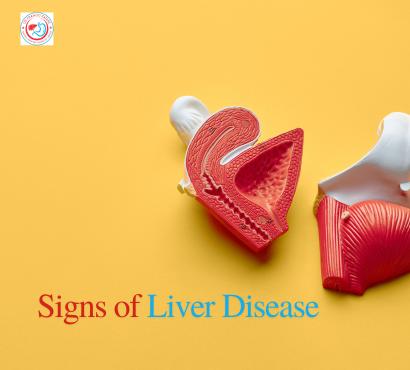The liver, a vital organ responsible for numerous metabolic processes, often suffers silently when diseased. In India, liver diseases are on the rise due to factors like alcohol consumption, viral hepatitis, and sedentary lifestyles. Recognizing early signs can lead to timely intervention and better outcomes.
Understanding Liver Disease
Liver disease encompasses a range of conditions affecting liver function, including:
- Hepatitis: Inflammation caused by viral infections (Hepatitis A, B, C).
- Fatty Liver Disease: Accumulation of fat in liver cells, common in obesity and diabetes.
- Cirrhosis: Scarring of liver tissue due to chronic damage.
- Liver Cancer: Malignant tumors originating in the liver.
Early Signs of Liver Disease
Early detection is crucial. Common signs include:
- Fatigue and Weakness: Persistent tiredness due to impaired metabolism.
- Loss of Appetite: Reduced desire to eat, leading to weight loss.
- Nausea and Vomiting: Digestive disturbances from toxin accumulation.
- Abdominal Pain and Swelling: Discomfort or bloating in the upper right abdomen.
- Jaundice: Yellowing of skin and eyes from bilirubin buildup.
- Dark Urine and Pale Stools: Changes in waste color due to bile flow issues.
- Itchy Skin: Pruritus caused by bile salt accumulation.
- Easy Bruising: Reduced clotting factors leading to bruises.
- Swelling in Legs and Ankles: Fluid retention from protein imbalance.
- Mental Confusion: Toxin buildup affecting brain function.
Risk Factors in India
Specific factors increasing liver disease risk in India include:
- Alcohol Consumption: Excessive intake leading to alcoholic liver disease.
- Viral Hepatitis: Prevalence of Hepatitis B and C infections.
- Obesity and Diabetes: Contributing to non-alcoholic fatty liver disease.
- Unhealthy Diet: High-fat, high-sugar diets affecting liver health.
- Self-medication: Overuse of hepatotoxic drugs without prescription.
Diagnosis and Screening
Early diagnosis involves:
- Blood Tests: Assessing liver enzymes and function.
- Imaging: Ultrasound, CT, or MRI to visualize liver structure.
- Liver Biopsy: Sampling tissue to determine disease extent.
Prevention Strategies
Maintaining liver health includes:
- Healthy Diet: Balanced meals rich in fruits, vegetables, and whole grains.
- Regular Exercise: Physical activity to manage weight and metabolism.
- Limiting Alcohol: Reducing intake to prevent liver damage.
- Vaccination: Immunization against Hepatitis A and B.
- Safe Practices: Avoiding sharing needles and practicing safe sex to prevent infections.
When to Consult a Doctor
Seek medical attention if experiencing:
- Persistent fatigue or weakness.
- Unexplained weight loss.
- Jaundice or changes in urine/stool color.
- Abdominal pain or swelling.
- Mental confusion or difficulty concentrating.
Awareness of liver disease signs is vital for early intervention. By adopting healthy habits and seeking timely medical care, individuals can protect their liver and overall well-being.
FAQs
- Can liver disease be reversed?
Early-stage liver diseases, like fatty liver, can often be reversed with lifestyle changes. However, advanced conditions like cirrhosis may only be managed, not cured.
- Is liver disease hereditary?
Some liver conditions have genetic components, but many are influenced by lifestyle and environmental factors.
- How often should liver function be tested?
Individuals with risk factors should have annual liver function tests or as advised by their healthcare provider.


